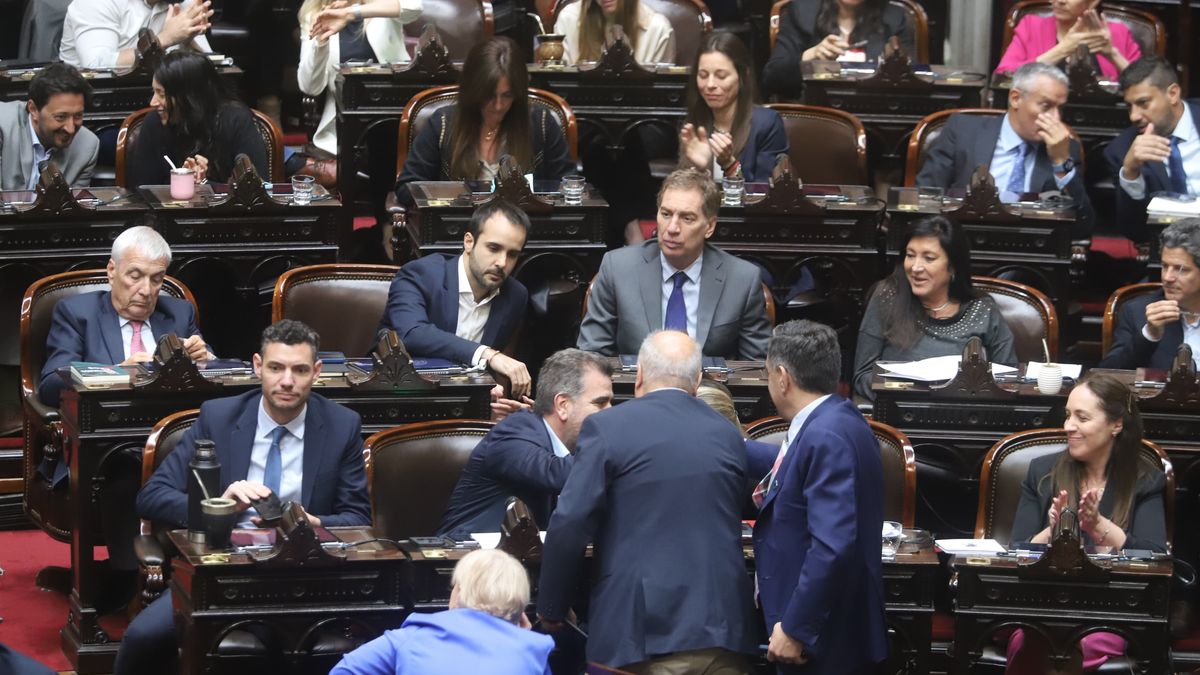One month later, the block of PRO Deputies announced the presentation of a draft resolution to remove Anchorena “for failure to fulfill the duties of a public official. Her explanations about the modification of the Law on Access to Public Information in the Constitutional Affairs Commission were not sufficient, and we consider that the head of the agency has breached his competence avoiding his responsibility and that it is still necessary to modify the restrictive regulations of Law No. 27,275, enacted during our government.”
Political scientist by University of Buenos Aires and master’s degree in Public Policy and Development Management from the Georgetown Universitythis same week Anchorena was elected by the Council of Europe as president of the Personal Data Protection Committee. His first experience in an Executive position was in 1999, in the Chief of Staff of the Nation.
Beatriz Anchorena Nicolás Mayoraz Access to Information
The head of the Agency for Access to Public Information, Beatriz Anchorena.
Mariano Fuchila
The appearance of Anchorena in Deputies
In his introduction to the defense of the topic, Beatriz Anchorena recognized that public information promotes “the exercise of citizen control over the management of the State and transparency in the actions of the Government”, but asked to “analyze DNU 780/24 as a current fact.” In this sense, he also admitted that “The Agency for Access to Public Information did not draft, promote, or endorse the decree.”
After developing the entire national and international regulatory framework that frames these requests, he reiterated that from the body he presides “We did not have a formal intervention with our own technical or legal opinion, nor did we participate in meetings or working groups.”. “Upon becoming aware of the content direction and regulations for access to information drafted comments on the critical points waiting to be called to a dialogue tablebut it was not possible to hold a meeting or a work table,” he explained. In this framework, he requested the intervention of the Judicial Council and the Public Prosecutor’s Office.
Asked if the different resolutions limit his intervention, given the influence that the Chief of Staff Regarding the organization, Anchorena stated that ““I am not saying that the Agency does not have autonomy.” but “if they do not call us to discuss a regulation, I cannot say that we participate in the elaboration of that regulation.” At the same time, he confirmed that “the public interest is of course appropriateness, necessity and proportionality.”
“In 2024 we have a total of 9,300 applications with a response rate of 95.2%. The Ministry of Economy is one of the entities that receives the most consultations; She is followed by the Chief of Staff, Human Capital, Health“, accurate.
What DNU 780/24 says about access to public information
He Decree 780/2024published on September 2 in the Official Gazette, the Executive Branch regulated the Article 1 of Law No. 27,275 and it was highlighted: “The violation of the principle of good faith by all the actors involved “configures the assumption provided for in article 10 of the Civil and Commercial Code of the Nation.”
In addition to the aforementioned redefinition of what is known as “public information”, the conceptualization of “document” was changed, establishing that “Preparatory deliberations and working papers, or the preliminary examination of a matter, will not be considered documents of a public nature.“.
At the same time, it is clarified that information that “due to its specificity, can be used to identify routines, movements and locations of a person; its public knowledge, dissemination or dissemination may, directly or indirectly, cause damages and losses.; “is related to complaints or ongoing investigations that, if made public, could put complainants, witnesses, victims or any other person involved at risk.”
Article 8 establishes that “the exception will be inapplicable when the owner of the data has given consent for its disclosure or when the data are closely related to the powers of public officials.” “In judicial cases where cases of serious violations of human rights, genocide, war crimes or crimes against humanity are investigated and tried, the exceptions will not be applicable. contained in this article, and the obligated subject must provide the information required within the framework of the case,” he adds.
Finally, it is proposed that “the Agency for Access to Public Information will take into consideration, for the purposes of preparing statistics, those repetitive requests that generate an unnecessary waste of administrative activity by the obligated subjectsor that constitute an abuse in the exercise of the right of access to public information by the requesters.”
Source: Ambito




